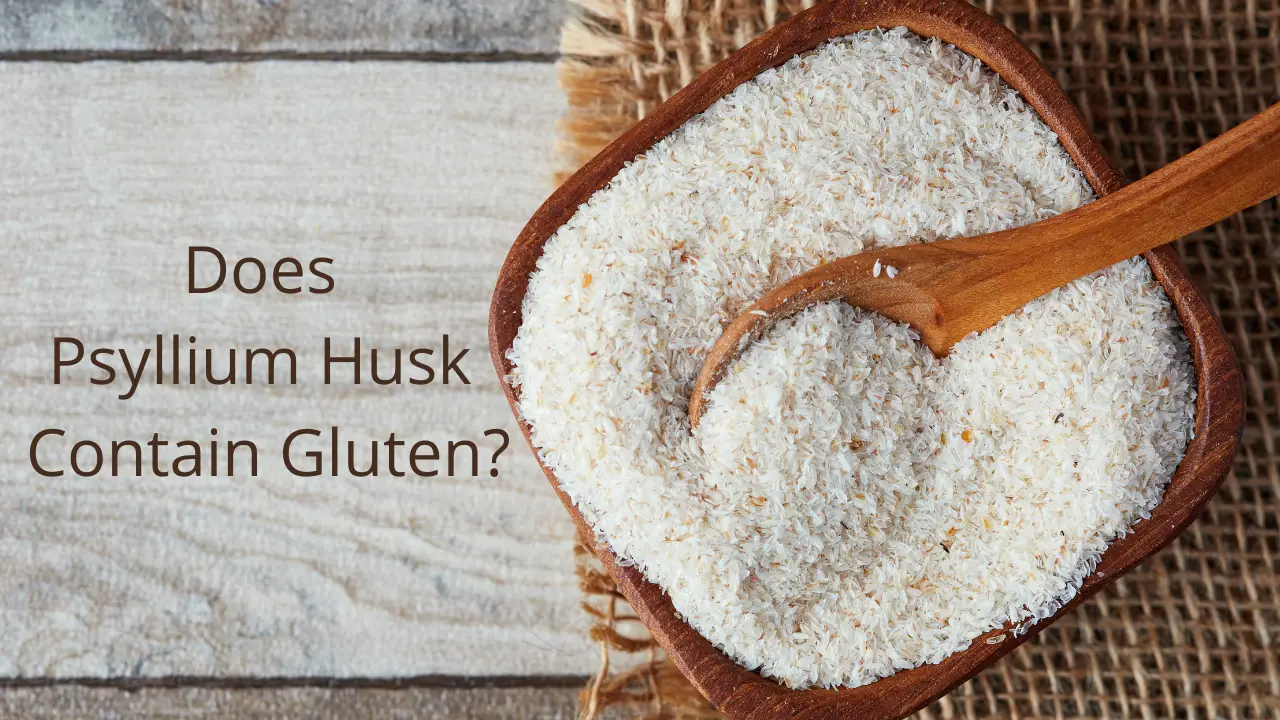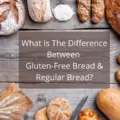Those who are relatively new to the gluten-free lifestyle might be looking for ingredients that substitute gluten in cooking and baking. As a blessing, you would've found psyllium husks as a binding agent.
Although, the ‘getting glutened' phobia is real, making any dieter question the ingredients they once considered safe. If psyllium husk is on your list of questioning ingredients, this guide is for you!
What is Psyllium Husk?
If you've never heard of psyllium, the word might scare you. It is a type of fiber obtained from the seeds of a predominantly Indian herb called Plantago ovata. Also called isabgol or ispaghol, it consists of 30 percent insoluble fiber and 70 percent soluble fiber.
Psyllium is available for usage in 3 forms. Some people prefer granules, while others are a great fan of capsules. The most commonly used form is the psyllium husk. Being a fiber, it supports digestive health through its function as a laxative. It has an outstanding ability to absorb water to form a gel-like mass.
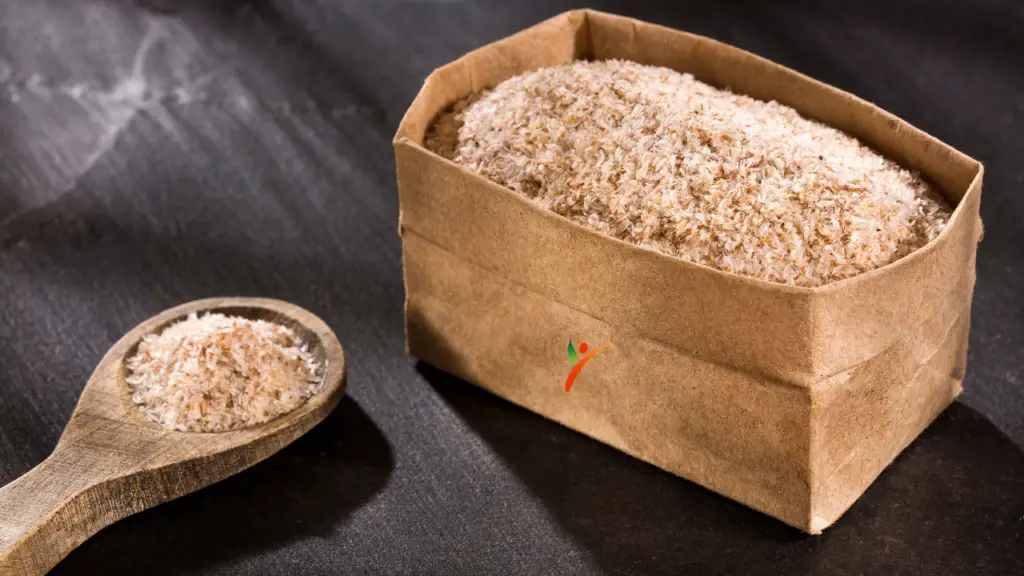
Moreover, it allows psyllium to avoid being completely digested, making it an excellent natural herbal remedy for several digestive problems. It has countless health benefits that aren't only restricted to gastrointestinal health.
Gluten, Celiac Disease, and a Gluten-Free Diet
With time, people have started to become more and more conscious about their health. They'll even give up on their favorite bread if it enhances their quality of life. One medical condition that has become popular recently is celiac disease.
The patients who suffer from this condition cannot eat gluten in wheat, barley, and rye. It is a protein that can trigger the immune system to produce harmful antibodies that attack the small intestine lining.
Consequently, the patient suffers from gastrointestinal symptoms such as constipation, diarrhea, bloating, and abdominal pain. Some patients also complain about other atypical symptoms that are indirectly related to gluten consumption.
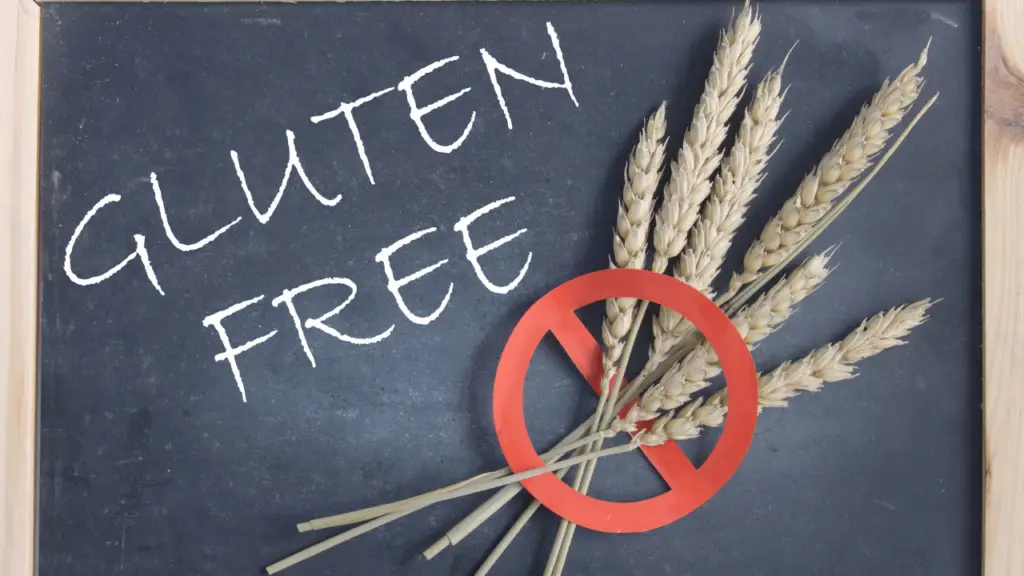
For instance, the small intestine is the organ that is responsible for absorbing the nutrients from food. If its lining is damaged, it can hamper normal nutrients absorption, leading to various deficiency diseases. A typical example of such complications is iron deficiency anemia.
Continuous intake of gluten will damage the small intestine lining, making it worse for celiac patients. The only possible treatment is following a gluten-free diet, in which the amount of gluten is less than 20ppm.
After a while, the small intestine starts to heal once the continuous attacks by antibodies are put to a halt. According to experts, 2-3 months of regularly eating a gluten-free diet can heal the small intestine completely. So if you're a patient who's just been diagnosed with celiac disease, a gluten-free diet can be a lifesaver for you.
It is not only a treatment but also prevents the symptoms from flaring up in the future. Therefore, celiac patients need to make sure they don't consume gluten even accidentally.
Gluten & Psyllium Husk
Patients that have celiac disease need to stay as far away from products containing gluten as they can. But the story doesn't end here. They also have to stay as far away from naturally gluten-free products that come in contact with gluten-containing products. So, to make sure that a particular food item is gluten-free, you need to be sure of 2 things.
Firstly, and most importantly, check whether a gluten-containing ingredient is used. Typically, gluten is found in wheat, barley, and rye, but some other ingredients can also be a hidden source.
Certain additives or preservatives can cause gluten contamination, while the condiments used in making some dishes bring gluten with them. Psyllium husk, on the other hand, is naturally gluten-free.
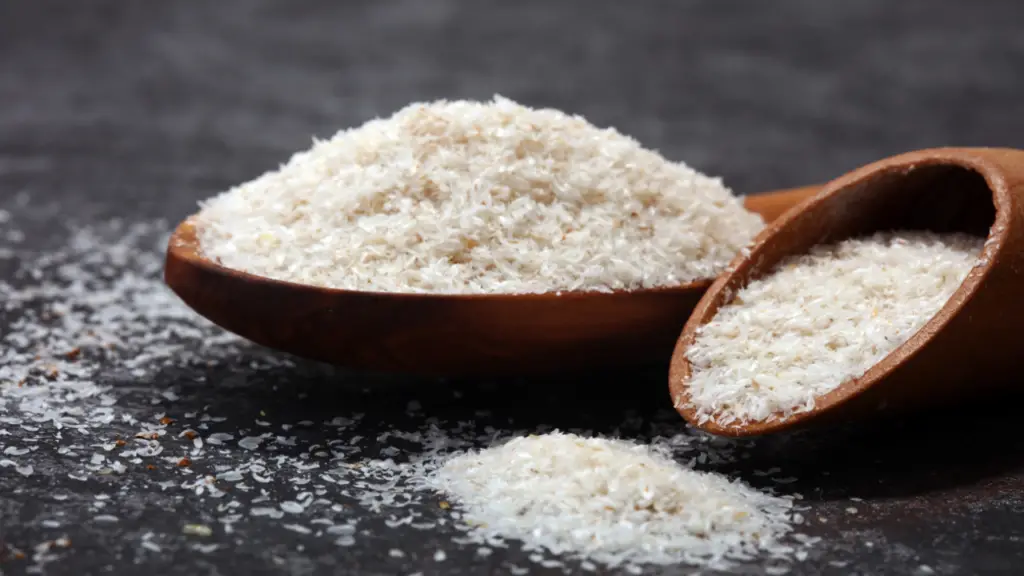
Since psyllium husk is categorized as a seed extract, it does not contain gluten in its original form. But, some companies use wheat flour in their psyllium husk that plays the role of a binding agent. Due to this, it is vital to check the ingredient label before buying psyllium husk.
The second thing that needs to be made sure of is there is no gluten cross-contamination. Cross-contamination occurs when a gluten-free item comes in contact with a gluten-containing item either directly or indirectly.
Suppose the psyllium husk is stored in the same storage unit as wheat flour. That's terrible news! That psyllium husk is more than likely to trigger the symptoms of a celiac patient. Handling psyllium husk using the same cooking utensils that were used for a gluten-containing item is a no.
Even using the same gloves can lead to cross-contamination. Usually, many companies avoid using the “gluten-free” label even though all the ingredients are gluten-free due to possible cross-contamination. So even if the psyllium husk is made from gluten-free ingredients, there's the risk of cross-contamination.
Health Benefits of Psyllium Husk
Psyllium husk has been an in-demand dietary supplement all around the world. Here are some health benefits that make psyllium husk so popular:
Constipation:
According to research, psyllium was more effective than wheat bran in enhancing the moisture, texture, and weight of the stool. In another study, 170 patients with constipation ate 5 grams of psyllium twice a day for 14 days. The water content and number of stools significantly increased in addition to the weight of the stool.
Blood sugar levels:
Taking psyllium husk can help control the blood sugar level after a meal and prevent spiking. For this reason, diabetic patients are often prescribed psyllium husk. The reason it is better than other alternatives is its mode of action is the most effective. In an experiment, 51 diabetic patients who also had constipation were given 10 grams of psyllium twice a day. After a while, their blood sugar reduced, and they were relieved of their constipation.

Heart health:
The American Heart Association states that psyllium plays an essential role in lowering blood pressure. Since raised blood pressure is the predominant cause of various heart issues, regularly eating psyllium ensures excellent heart health. After 48 trials, researchers conducted that 10.2 grams of psyllium per day can help prevent heart attack and stroke.
Weight loss:
Regularly consuming small quantities of psyllium can go a long way in reducing weight. Since fiber helps in slowing down the emptying of the stomach, psyllium can boost satiety. Consuming them leads to a reduced appetite, which can be a decisive factor in weight loss attempts.
Psyllium husk in Gluten-Free Baking
Since gluten plays a binder's role in bread and other baked items, gluten-free items naturally lack a binder. Without a binder, the bread and pasta won't maintain a proper shape and crumble quite easily.
But with psyllium husk around, there's nothing to worry about. Psyllium husk is exceptional at absorbing the water content, meaning it is highly hygroscopic. This property can make all the difference in baking, as binding the moisture prevents the baked goods from crumbling.
Typically, gluten-free items use xanthan gum as a binder, but psyllium has a higher viscosity, making it more effective. Psyllium creates a sturdy network by interacting with the proteins in gluten-free flour.

As a result, the flour can hold more gas and steam, giving it an improved and airy texture. Psyllium husk also provides the flour with the next best whole-wheat taste.
For this reason, it is the perfect candidate for making bread. Each teaspoon of psyllium husk brings 4 grams of fiber to the table. As a result, your gluten-free baked items don't have to be low on fiber anymore. Psyllium gives the best results with yeast bread and pizza dough.
Alternative Ingredients for Psyllium Husk
Psyllium husk is a common ingredient in gluten-free baking. However, not everyone has it in the kitchen pantry available at all times. For gluten-free baking, you need a binding element that performs the role of gluten for your baked goods.
Indeed, the texture of gluten-free baked goods is essential, or else they're a dense, soggy, and unrisen disaster. We have several alternatives you can use when you're out of psyllium husk:
Xanthan Gum:
Xanthan gum does not equate to the nutritional value of psyllium husks in gluten-free baking. Although, it does help when it comes to binding your non-gluten baked goods. This powder-like substance makes for one of the top-most gluten-free binders in gluten-free baking. When substituting xanthan gum for psyllium husk, use half of the mentioned quantity. You may need to gradually get it to a 1:1 ratio depending on the brand and the recipe.
Guar Gum:
Guar gum, a product of the legume family, is another powdered substance that adds texture to gluten-free baked goods. It primarily acts as a stabilizer and thickener, which in return ensures that your mixture isn't too runny. It's why adding guar gum is common in gluten-free recipes like soups and gravies too. For improved texture and shelf-life, use one tablespoon of guar gum for bread. In the case of quick bread, biscuits, and cookies, ¼ teaspoon can do the trick.
Agar-Agar:
Agar-agar works like gelatin, but it's vegan-friendly. It doesn't add any flavor to the baked product, and you'll probably want to avoid flavors from binding agents anyway. This gel-like substance acts as a stabilizer and thickener and provides the ideal texture for baked goods. Avoid using too much, though, or else you'll end up with soggy results.
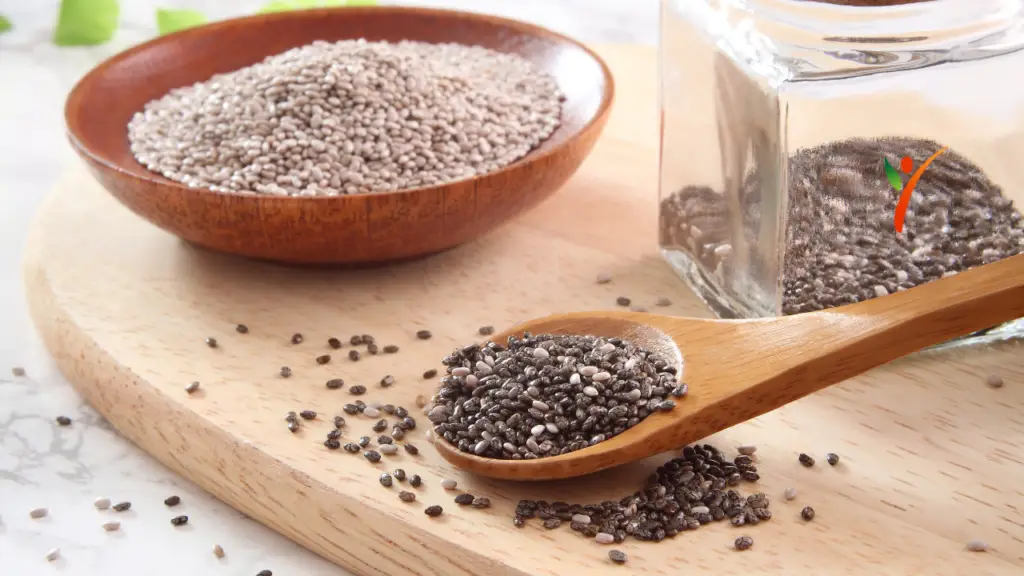
Chia Seeds:
Despite their strong taste, chia seeds hold an advantageous position in gluten-free baking. Have you ever heard of chia pudding? It's because chia seeds are loaded with nutrients beneficial for your body, especially cardiovascular health. A common practice is to soak them before using the next day and grinding them for a finer texture. Use it in a 1:1 ratio, but soak it in double the water quantity.
Ground Flax Seeds:
Flax seeds may be your next favorite gluten-free binding ingredient. It has all the benefits of psyllium husk, along with other minerals and vitamins. It's a substitute that works for both gluten-free and vegan dieters. Besides its texture-enhancing properties, you can use it as a replacement for egg whites too. Typically, you'll need to substitute psyllium husk for this using a 1:1 ratio.
Final Words
Hence proved, you can add psyllium husk to the gluten-free lifestyle without worrying about it. It plays a vital role in gluten-free baking, so you wouldn't want to miss out on it. Just check for gluten-based additives or cross-contamination by asking the manufacturer. Otherwise, you're good to go!

The owner of this website, HealthYeahLife.com is a participant in the Amazon Services LLC Associates Program, an affiliate advertising program designed to provide a means for sites to earn advertising fees by advertising and linking HealthYeahLife.com Review to Amazon properties including, but not limited to, amazon.com.

